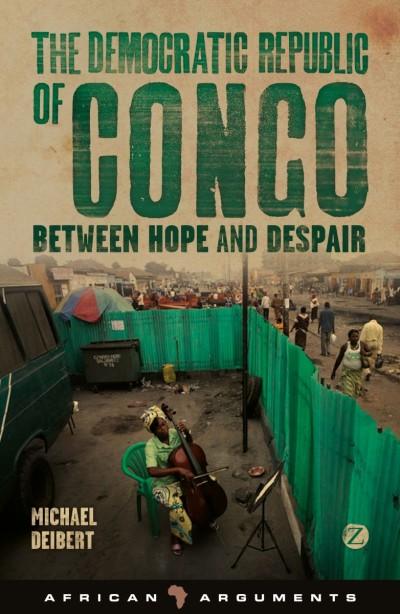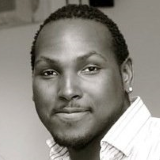The Democratic Republic of Congo: Between hope and despair – Michael Deibert – Reviewed by Kris Berwouts

 Joséphine Mpongo Nsimba has a difficult life but despite this, she tries to enjoy it. She wakes up before dawn and leaves the house to sell omelets at Kinshasa’s main market. Her income is hardly enough to make a living for herself and her children – prices have fallen recently because cheap eggs coming from outside the continent spoiled the market. After work, she rehearses.
Joséphine Mpongo Nsimba has a difficult life but despite this, she tries to enjoy it. She wakes up before dawn and leaves the house to sell omelets at Kinshasa’s main market. Her income is hardly enough to make a living for herself and her children – prices have fallen recently because cheap eggs coming from outside the continent spoiled the market. After work, she rehearses.
Josephine plays cello in a symphonic orchestra of gifted amateur musicians, determined and passionate to perform music together in one of the most chaotic cities in the world. The Film “˜Kinshasa Symphony’ shows how a group of Congolese citizens has managed to forge a system as complex as a symphonic orchestra in a town as complicated as Congo’s capital. The movie is deeply human, intensely real, it paints scenes of extreme grimness as well as portraits of people determined to follow their dreams. Ther are people who continue to believe that, one day, the future will be better despite current indications to the contrary.
Josephine is also pictured on the cover of Michael Deibert new African Arguments book “˜The Democratic Republic of Congo: Between Hope and Despair’, a groundbreaking examination of one of Africa’s most iconic and tragic countries and a must-read for people interested in contemporary African politics in general and the Great Lakes Region in particular. Deibert is a journalist and author who has written for the Washington Post, the Wall Street Journal, the Guardian and Le Monde Diplomatique. He has also been a featured commentator on international affairs for the BBC, Channel 4, Al Jazeera, WNYC New York Public Radio and many others. He is the author of Notes from the last Testament: The struggle for Haiti (2005).
Congo and Central Africa have been shaped by complex regional dynamics, through which local cleavages and national conflicts have spilled over national borders. Each country in the region has a complex internal situation and a violent recent history, where local contradictions have become polarized and entangled with those of neighbouring countries. Following the end of the Cold War and throughout the 1990s these regional dynamics developed into an avalanche of killing and destruction. During the two wars in the DRC (1996-1997 and 1998-2002) which followed the genocide in Rwanda, the Congo and particularly its eastern provinces became the battlefield of “Africa’s First World War”.
In the book, Michael Deibert has connected thousands of threads to weave into a variegated and subtle tapestry which paints Congo’s history from the dark days of Belgian conquest and tyranny to the modern day atrocities carried out by warring militias and their legions of child soldiers.
Between Hope and Despair closely examines the Congolese state – the result of half a century of post-colonial history and a country that faced its first threat of implosion only days after it achieved independence, became a major pawn on the chess board of the cold war and developed under Mobutu a system for which the word “˜kleptocracy’ had to be invented. Deibert describes how this state was shaped by the long-term involvement of the United States and Europe in supporting and arming many of the belligerents in Congo’s conflicts, the ongoing murky role played by foreign interests in exporting mineral resources linked to the country’s continuing instability and Congo’s own tortuous political and ethnic legacies.
His judgment is hard: “Drifting and myopic policies drawn up by a succession of international leaders were most often forged in the context of imagined grand geo-politics rather than the realities on the ground, allowing both Kabila and Congo’s neighbor to operate with brutality and impunity. Predatory and unscrupulous foreign business practitioners stepped into the void left by corruption and nepotism and continue to bleed the country dry of its mineral riches.”
Michael Deibert takes us with him on his journey down Congo’s muddy roads from the war-torn hills in the Kivus to the chaotic, pulsing capital of Kinshasa, presenting us the Congolese polyphony from impoverished gold prospectors and market women to government officials. His heart is with the communities and his book blames the world leaders who’ve either turned a blind eye to or directly fomented the misery of the Congolese people.
“… the bloodshed that has befallen the country (…) is not the result of some sort of indigenous, irresistible, immemorial blood lust on the part of the Congolese, but rather has been a tool used by individuals and governments to advance their own political and economic goals throughout the territory Congo occupies, a state of affairs that has been true for the last 140 years.”
I don’t think I will put Deibert’s work back on the bookshelf. I will keep it within reach on my desk. Apart from an empathic narrative of hope and despair and a solid holistic analysis grounded in history, it is also a very practical mini-encyclopedia on Congo’s devastating conflicts and the many attempts to end them. If something happens tomorrow – the death of a key player of the last two decades, the outbreak of new violence in Ituri or the province of Bas-Congo, a new arrest warrant issued by the ICC – it would only take me a few minutes to freshen up with the necessary background knowledge from Deibert’s book, allowing me to fully understand any new development.
Kris Berwouts has, over the last 25 years, worked for a number of different Belgian and international NGOs focused on building peace, reconciliation, security and democratic processes. Until recently, he was the Director of EurAc, the network of European NGOs working for advocacy on Central Africa. He now works as an independent expert on Central Africa.





